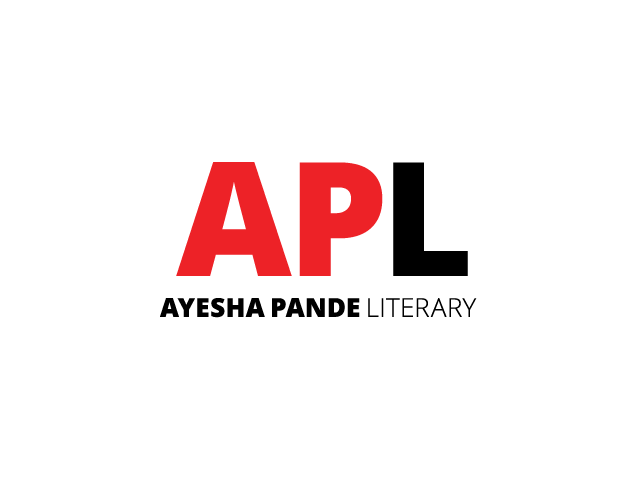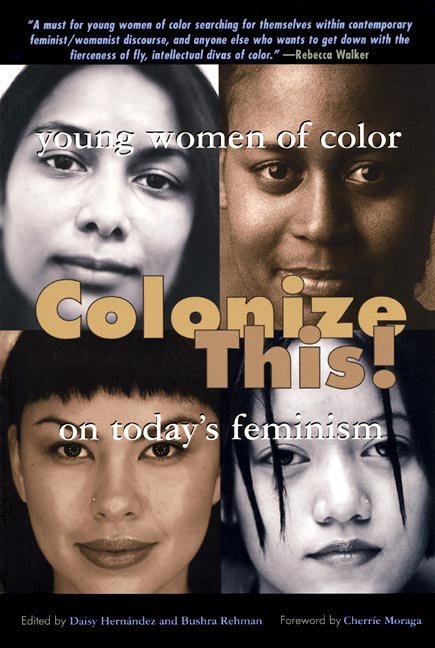Bushra Rehman
Author of
Roses, in the Mouth of a Lion (Flatiron Books, 2022)
Colonize This! Young Women of Color on Today's Feminism (Hachette, 2019)
Marianna’s Beauty Salon (Sibling Rivalry Press, 2018)
Corona (Sibling Rivalry Press, 2013)
Colonize This! Young Women of Color on Today's Feminism
(Seal Press, 2002)
Award-winning novelist Bushra Rehman is an engaging storyteller whose readings and lectures are suffused with humor and wisdom about the peculiar joys and contradictions of being a woman of color, a feminist, and a Muslim-American in post-9/11 America.
Rehman grew up in a tight-knit religious community in Queens surrounding one of the first Sunni masjids built in NYC. In the late 90s, Rehman became a key figure in the South-Asian American arts scene, performing her poetry and comedy in cafes, theaters and universities. In collaboration with writer Daisy Hernandez, Rehman created the anthology Colonize This! Young Women of Color on Today’s Feminism which was published in 2002 and chosen by Ms. Magazine as one of the “100 Best Non-Fiction Books of All Time” by Vibe magazine as one of “13 Books Every Mujerista and Womanist should read” and by Bustle as one of the “18 Books Every White Ally Should Read.”
Rehman’s first novel Corona, a lyrical, poignant and funny tale about growing up Muslim and Pakistani-American in Corona, Queens, was included in Poets & Writers Best Debut Fiction issue of 2013, was a LAMBDA finalist for 2014, and featured in the LA Review of Books among a new wave of radical South Asian American Literature. Corona is already considered essential reading in Asian-American studies classrooms around the country.
Rehman’s first book of poetry Marianna’s Beauty Salon, a collection of poems which explore sexuality, poverty and second-generation Pakistani culture, will be released by Sibling Rivalry Press in 2018. Her first Young Adult novel, Corona: Stories of a Queens Girlhood, centers around the friendship between two Pakistani Muslim teenage girls growing up in NYC.
In her past lectures, Rehman has spoken compellingly of the distinctive effects of Audre Lorde’s “transformation of silence into language” for a Pakistani woman from Queens. She discusses her experience writing about powerful Muslim-American women who do not fit the norm and who are involved in real-life struggles to be their truest selves, despite cultural pressures at home and racism outside the home.
Her readings and lectures can be combined with small- or large-group writing workshops in which students learn techniques to help draw on memory, navigate the tricky business of truth-telling, and overcome the silences that stifle our creative living.
Instagram / Twitter / BushraRehman.com / Visit Bushra at PLM! / Represented by Ayesha Pande
Books by Bushra
Roses, in the Mouth of a Lion (Flatiron Books, 2022)
An unforgettable story about female friendship and queer love. The book centers on Razia Mirza, a young Pakistani-American growing up in a tight-knit Muslim community in Corona, Queens and delves with humor and pathos into the emotional complexities of religious communities, friendship and desire. Rehman has written a story that marries the lyricism of Ocean Vuong’s On Earth We’re Briefly Gorgeous with the exploration of female friendships found in Elena Ferrante’s My Brilliant Friend.
Praise
“Rehman's storytelling shares the elliptical grace of poetry. Her deeply sensitive protagonist, Razia, comes into sharp-focus like a shaken photograph, and Queens rears off the page in all its glorious vibrancy and complexity. I loved every moment I spent in Razia's company. A stunning novel from a vital writer.”
—Karen Russell, author of Swamplandia! and Orange World
“Roses, in the Mouth of a Lion is a brave, beauty-filled book that takes you by the hand and into Razia’s world. This book made me nostalgic for Queens and reminded me to take care of the girl who still lives inside me. I love this lush, lovely book—it deepens our understanding of the human experience and is a fiercely beautiful and honest ode to all girls becoming women.”
—Ishle Yi Park, first woman poet laureate of Queens and author of The Temperature of This Water and Angel & Hannah
“With a poet's sensibility for language, Bushra Rehman has created a tender and multi-layered story of young Muslim women navigating a complicated and racialized world. This novel will break your heart open.”
—Daisy Hernández, author of A Cup of Water Under My Bed
Colonize This!: Young Women of Color on Today’s Feminism (Hachette, 2019)
It has been decades since women of color first turned feminism upside down, exposing the feminist movement as exclusive, white, and unaware of the concerns and issues of women of color from around the globe. Since then, key social movements have risen, including Black Lives Matter, transgender rights, and the activism of young undocumented students. Social media has also changed how feminism reaches young women of color, generating connections in all corners of the country. And yet we remain a country divided by race and gender.
Now, a new generation of outspoken women of color offer a much-needed fresh dimension to the shape of feminism of the future. In Colonize This!, Daisy Hernandez and Bushra Rehman have collected a diverse, lively group of emerging writers who speak to the strength of community and the influence of color, to borders and divisions, and to the critical issues that need to be addressed to finally reach an era of racial freedom. With prescient and intimate writing, Colonize This! will reach the hearts and minds of readers who care about the experience of being a woman of color, and about establishing a culture that fosters freedom and agency for women of all races.
Praise
"These contemporary 'sistah outsiders' don't shy away from sticky issues when addressing the complexities of their lives. Refusing to simplify in order to fit into someone's mold, these women dare you to dismiss them."
―Bust
"This is one of those books which should be required reading for every young sister out there."
―Asian Weed
"These women express a more radical, racialized feminism that broadens the movement beyond its early incarnation."
―Booklist
Marianna’s Beauty Salon (Sibling Rivalry Press, 2018)
“In Marianna’s Beauty Salon, a daughter-witness records the lifelong trades and private tolls of immigration: promise passed down to children who sing the songs of the new land, learning the charm and violence of strange streets. These poems travel memory’s vast landscapes and never quite get over love’s ability to simultaneously wound and sustain us. … Rehman’s poems are about home—the ones we inherit, flee. The homes we lose and still carry, and the homes we become for each other.” — Kamilah Aisha Moon, author of Starshine & Clay and She Has a Name
Bushra Rehman’s debut collection singes in its interrogation of the American dream… These sly, adept poems work through circumstances under threat with audacity, humor, and wonder. Rehman offers a new kind of fairy tale… surreal yet rooted in harsh, ugly modern realities. Simply and profoundly, her book is a love poem for Muslim girls, Queens, and immigrants making sense of their foreign home–and surviving. — Joseph O. Legaspi, author of Threshold and Imago
Corona (Sibling Rivalry Press, 2013)
Razia Mirza is a Pakistani woman from Corona, Queens who grew up in a tight Muslim community surrounding the first Sunni masjid built in New York City. When a rebellious streak leads to her ex-communication, she decides to hit the road. Corona moves between Razia’s childhood in Queens and the comedic misadventures she encounters on her journey, from a Puritan Colony in Massachusetts to New York City’s Bhangra music scene. With each story, we learn more about the past she’s escaping, a past which leads her to constantly travel in a spiral, always coming closer to but never quite arriving home.
Praise
“Endearing, irreverent and engaging. Bushra Rehman’s epic journey into various worlds big and small not only exposes the sordid fabric of Americana but does it through the riotously humorous lens of a sharp 2nd generation Queens bred Desi New Yorker. In Razia, she has created a unique character that is daring, hilarious, vulnerable and fierce. You will want to keep traveling with her long after the book ends.”
—DJ Rekha
”These stories have the heft of a novel and the elliptical grace of poetry. Rehman’s hot-blooded, ferociously funny and deeply sensitive protagonist, Razia, travels from the Muslim community of Queens to roadside Florida to the fogged windows of San Francisco and the Lower East Side. Along the way she falls into and out of love, takes frightening, exhilarating risks, repeatedly saves her own life, and comes into sharp-focus like a shaken photograph–she is about to gleefully dynamite every narrow stereotype you might have about a young Pakistani woman from Corona. A stunning debut from a vital new writer.”
—Karen Russell, author of the novel Swamplandia! and the story collection Vampires in the Lemon Grove
”Bushra Rehman is a lot like her borough—plainspoken, artful, always alert and alive to the rhythms of the world that thrive within the worlds of Queens. A master of mood, her stories brim with bittersweet wit and insight. Corona will have you laughing until you cry and weeping until you smile.”
—Jeff Chang, author of Can’t Stop Won’t Stop: A History of the Hip-Hop Generation and Who We Be: The Colorization of America
Colonize This!: Young Women of Color on Today’s Feminism (Seal Press, 2002)
It has been decades since women of color first turned feminism upside down, exposing the ‘70s feminist movement as exclusive, white, and unaware of the concerns and issues of women of color from around the globe. Now a new generation of brilliant, outspoken women of color is speaking to the concerns of a new feminism, and to their place in it. Daisy Hernandez of Ms. magazine and poet Bushra Rehman have collected a diverse, lively group of emerging writers who speak to their experience—to the strength and rigidity of community and religion, to borders and divisions, both internal and external—and address issues that take feminism into the twenty-first century.
One writer describes herself as a “mixed brown girl, Sri-Lankan and New England mill-town white trash,” and clearly delineates the organizing differences between whites and women of color: “We do not kick ass the way the white girls do, in meetings of NOW or riot grrl. For us, it’s all about family.” A Korean-American woman struggles to create her own identity in a traditional community: “Yam-ja-neh means nice, sweet, compliant. I’ve heard it used many times by my parents’ friends who don’t know shit about me.” An Arab-American feminist deconstructs the “quaint vision” of Middle-Eastern women with which most Americans feel comfortable.
This impressive array of first-person accounts adds a much-needed fresh dimension to the ongoing dialogue between race and gender, and gives voice to the women who are creating and shaping the feminism of the future.














